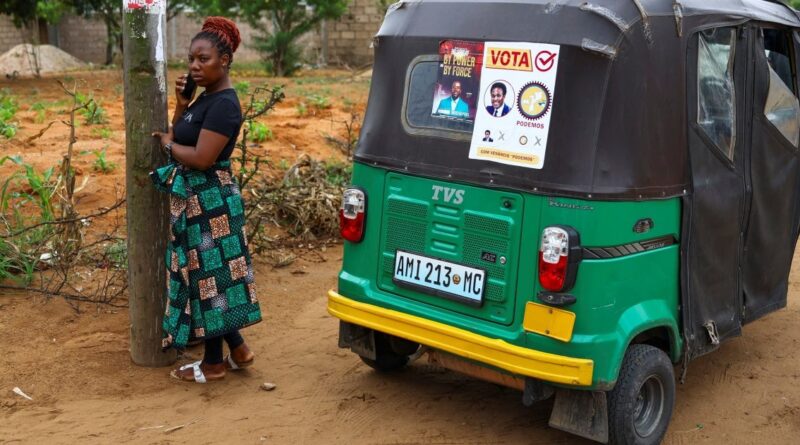Mozambique: Post-Election Internet Blockades Impede Rights
(Johannesburg) – Mozambican authorities should immediately end internet restrictions imposed from 25 October 2024, and restore full access to social media platforms, Human Rights Watch e said today. Internet restrictions and shutdowns violate many rights including access to information, freedom of expression, and peaceful protest, and people’s ability to earn a living through online business.
The restrictions follow a violent crackdown by government forces against opposition supporters who peacefully marched across the country to protest the outcome of October’s general election. The Deputy Minister of Transport and Communications, Amilton Alissone, told the media that internet services will only be restored when the necessary conditions are in place, but he did not order a public shutdown or set the conditions.
Allan Ngari, Africa advocacy director at Human Rights Watch, said: “The Mozambican government’s arbitrary restrictions on internet access violate human rights and must be lifted immediately.” “Closings impede people’s ability to receive and use life-saving information, to assemble peacefully, and to express their political views in times of crisis.”
On October 24, Mozambique’s electoral commission announced that Daniel Chapo and the ruling Frente de Libertação de Moçambique (Front for the Liberation of Mozambique, FRELIMO) party had won the election. As of the next day, people across the country have reported internet connectivity disruptions, after Venâncio Mondlane, an independent candidate supported by the leading opposition party, Partido Optimista pelo Desenvolvimento de Moçambique (People of Hope for the Development of Mozambique, Podemos), announced its slogans. protest on his Facebook account.
Mobile service providers including Vodacom, Movitel, and TMcel acknowledged in a message sent to customers on October 31 that “access to some internet networks is temporarily restricted for reasons beyond our control .”
Cloudflare, a widely used US company that provides network security services and publishes data on network disruptions, has indicated that the shutdown of four mobile phones and networks in happened two weeks ago in Mozambique. It said the phone and internet connection was cut off starting around noon local time on October 25, and happened at least three more times, on November 3, 4 and 5.
From October 29 onwards, OONI Explorer, a web monitoring project, recorded the possible blocking of social media platforms and messaging applications such as Facebook Messenger, Telegram and WhatsApp.
Mozambique’s telecommunications regulatory body, the National Telecommunications Agency of Mozambique (INCM), spoke vaguely about the matter, without providing any detailed information, including the legal framework of justifying restrictions.
In a statement quoted in the media and reviewed by Human Rights Watch, the INCM said it “followed with concern the use of social media in the country to publish videos and messages that encourage and promote violent demonstrations and other acts of disobedience and destabilization of society. The statement cited the Telecommunications Act, saying such videos constitute “fraudulent traffic” and “a threat to national security.”
Internet restrictions have posed a serious threat to the rights and livelihoods of citizens, Human Rights Watch said. Three online retailers told Human Rights Watch that their inability to advertise their products on social media has severely hampered their business.
The 26-year-old mother of three, who sells clothes on the WhatsApp Business platform, said: “I’m not making money because no one sees my products on WhatsApp. And I can’t go out and sell because of violent protests in the streets. How are we going to pay our debts?”
The bans have also had a major impact on students, who have turned to online courses during street protests that have been violently suppressed by the police. A 19-year-old university student said: “For more than a week now, I have not been able to use WhatsApp to exchange information with my classmates or to download materials sent by the teacher. Mobile internet is not stable, and I can’t connect to Zoom for online classes. I am very anxious and worried because this is exam time.”
The United Nations Human Rights Committee in its general statement on freedom of expression under the International Covenant on Civil and Political Rights, to which Mozambique is a party, obliges governments to ensure that any restrictions on information on the Internet are provided by law, they are necessary and equal. response to a specific threat, and are in the public interest. It also states that governments are prohibited from blocking or disrupting internet connectivity in connection with peaceful assemblies.
The Declaration of Principles on Freedom of Expression and Access to Information in Africa by the African Commission on Human and Human Rights provides that governments should not intervene or allow any restriction of access to the Internet and technologies some digital for social sectors. or the whole nation.
Various UN experts have stressed the inconsistency of blocking the internet with international human rights law, and have urged countries not to post internet communications “designed to restrict access and exchange” of information related to elections, collecting and participating in peaceful protests and monitoring such protests.”
Internet service providers should make every effort to avoid or minimize the risk from access restriction orders, including by narrowly interpreting requests and imposing the smallest restrictions possible, and legally challenge unnecessary service interruptions. They should also provide customers with advance notice of shutdowns, and disclose the government’s role and legal basis for blocking access to networks and services. They should prioritize their responsibilities under the United Nations Guiding Principles on Business and Human Rights, and refrain from engaging in human rights abuses.
“The lack of transparency surrounding Mozambique’s internet restrictions reinforces the perception that they are aimed at suppressing peaceful protests and public criticism of the government,” Ngari said. “Amid the ongoing unrest, the Mozambican government should immediately restore internet access to help people access important information.”
#Mozambique #PostElection #Internet #Blockades #Impede #Rights
